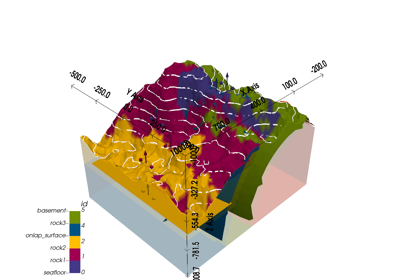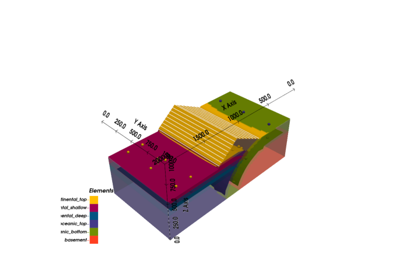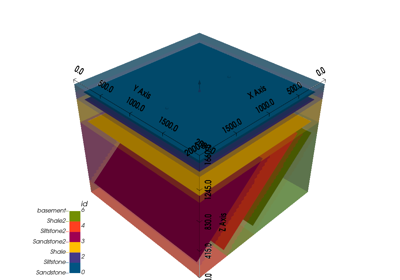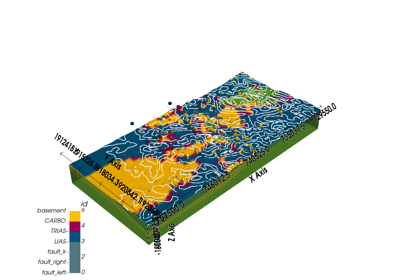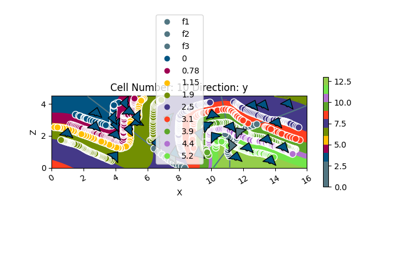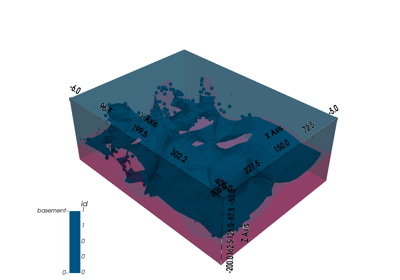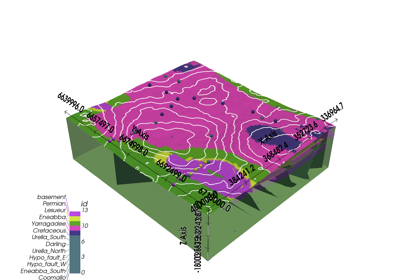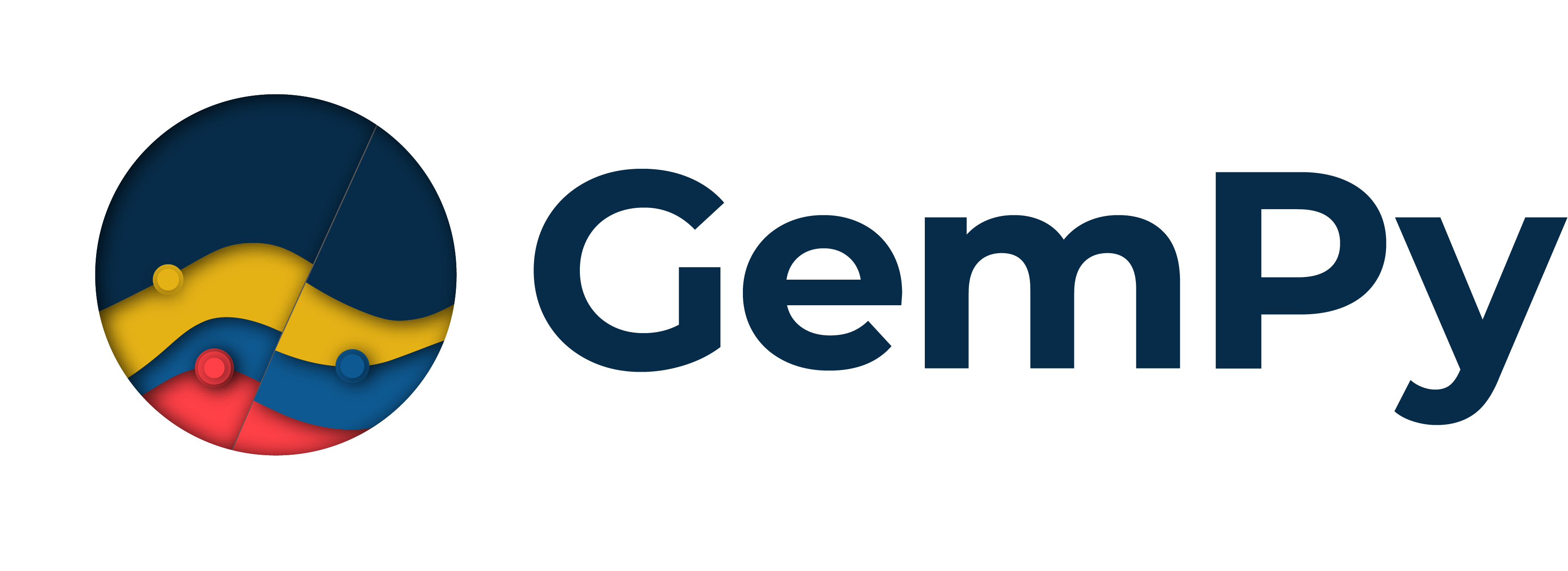gempy_viewer.plot_3d¶
- gempy_viewer.plot_3d(model: GeoModel, plotter_type: str = 'basic', active_scalar_field: str | None = None, ve: float | None = None, topography_scalar_type: TopographyDataType = TopographyDataType.GEOMAP, kwargs_pyvista_bounds: dict | None = None, kwargs_plot_structured_grid: dict | None = None, kwargs_plot_topography: dict | None = None, kwargs_plot_data: dict | None = None, kwargs_plotter: dict | None = None, kwargs_plot_surfaces: dict | None = None, image: bool = False, show: bool = True, transformed_data: bool = False, **kwargs) GemPyToVista[source]¶
Plot 3-D geomodel.
- Parameters:
model (GeoModel) – Geomodel object with solutions.
plotter_type (str) – Type of plotter to use. Defaults to ‘basic’.
active_scalar_field (Optional[str]) – Active scalar field for the plot.
ve (Optional[float]) – Vertical exaggeration.
topography_scalar_type (TopographyDataType) – Type of topography scalar data. Defaults to TopographyDataType.GEOMAP.
kwargs_pyvista_bounds (Optional[dict]) – Additional keyword arguments for PyVista bounds.
kwargs_plot_structured_grid (Optional[dict]) – Additional keyword arguments for plotting the structured grid.
kwargs_plot_topography (Optional[dict]) – Additional keyword arguments for plotting the topography.
kwargs_plot_data (Optional[dict]) – Additional keyword arguments for plotting data.
kwargs_plotter (Optional[dict]) – Additional keyword arguments for the plotter.
kwargs_plot_surfaces (Optional[dict]) – Additional keyword arguments for plotting surfaces.
image (bool) – If True, saves the plot as an image. Defaults to False.
show (bool) – If True, displays the plot. Defaults to True.
transformed_data (bool) – If True, uses transformed data for plotting. Defaults to False.
**kwargs – Additional keyword arguments.
- Returns:
Object for 3D plotting in GemPy.
- Return type:
GemPyToVista
